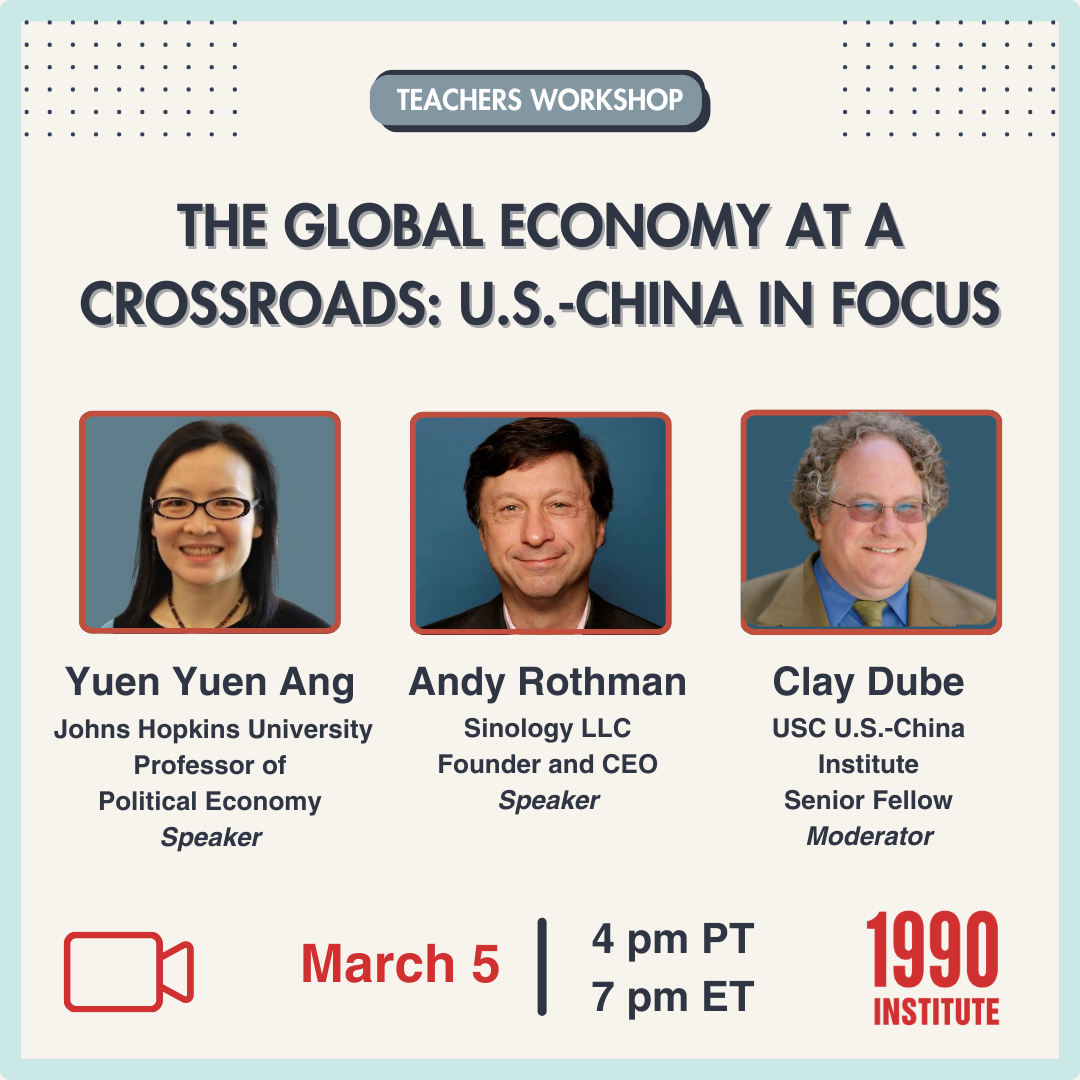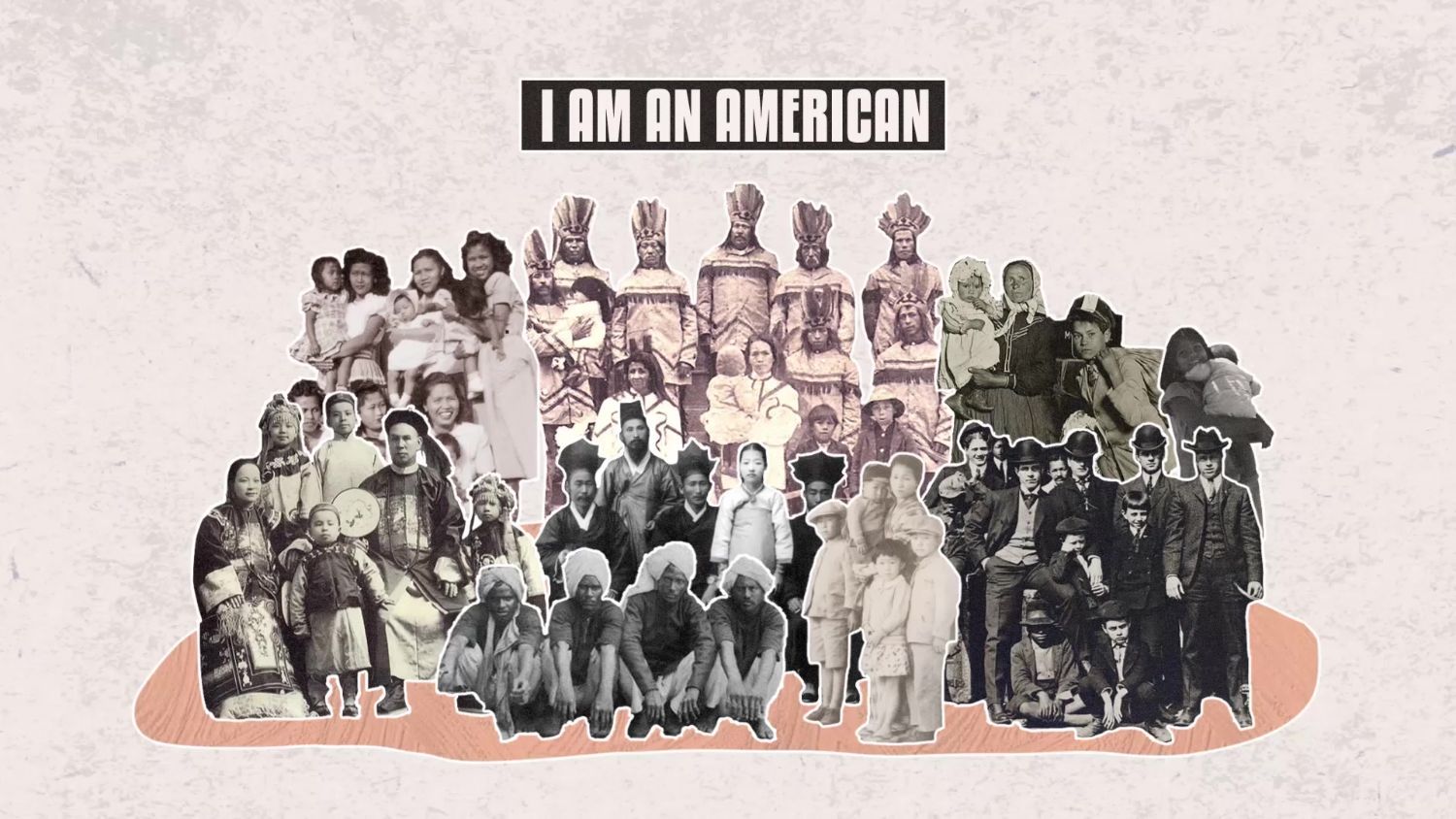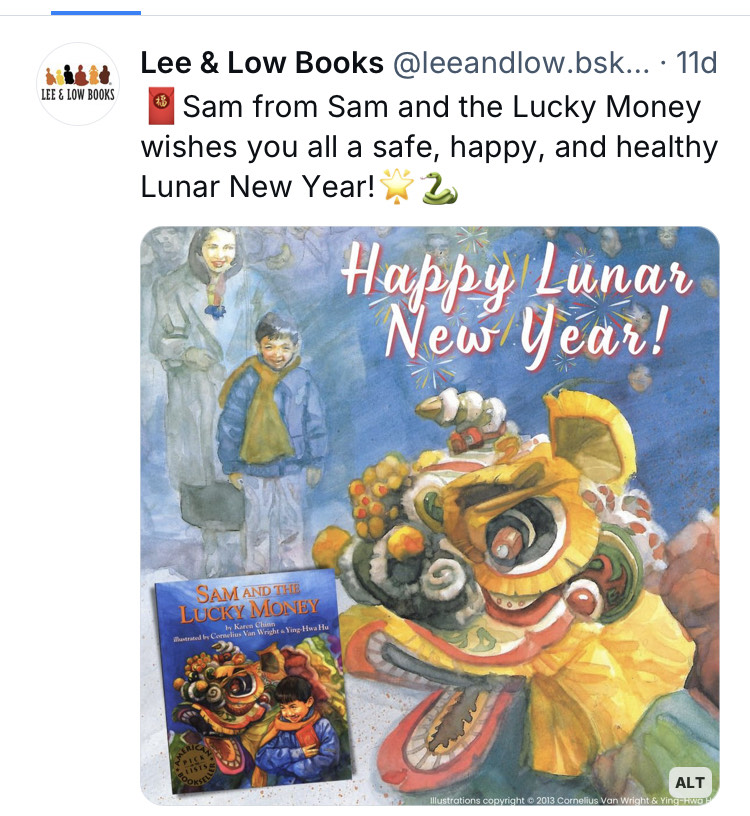| | | | Dear Friends, We are pleased to announce that our 2025 Teachers Workshop impact study has begun and that our next Teachers Workshop – the second session of our two-part series on China’s economy – has been updated to March 5. In addition, with birthright citizenship in the news, we have compiled resources to share that provide insight on this important topic. See more information below and scroll down to our Spotlight section. The 1990 Institute is conducting an impact study on our Teachers Workshop program and is asking educators to share their thoughts and experiences via a short survey. This survey is available to educators only. Your input will help us refine our workshops so that we can provide you with valuable teaching resources and information. If you are an educator and did not receive the email with a link to the survey, please reach out to us at survey@1990institute.org and we will add you to our Teachers email list. Educators will receive $15 for completing the survey by February 28. Thank you to those who have already completed the survey. We are only a few weeks away from our next Teachers Workshop: “The Global Economy at a Crossroads: U.S.-China in Focus” is on March 5 at 4 pm ET / 7 pm PT. This is the second session of our two-part webinar series on China's economy. The recording and curated resources for the first session, "China's Economic Transformation: Policy, Challenges & Domestic Impact" are available here. The United States and China represent the two largest economies in the world, with deeply interconnected yet often competing interests, shaped by regulatory, cultural, and geopolitical factors. Join us for our webinar on March 5 exploring their economic relationship involving trade, investment, and technology exchanges. Our esteemed panel includes Yuen Yuen Ang, Alfred Chandler Chair Professor of Political Economy at Johns Hopkins University; Andy Rothman, founder and CEO of Sinology LLC and a seasoned economist and investment strategist; and Clay Dube, Director Emeritus at the University of Southern California U.S.-China Institute. Register here. With birthright citizenship in the news, we have compiled resources to share that provide insight on this important topic. Scroll down to our Spotlight section for more information. If you are able to make a charitable contribution of any amount, we would be grateful to continue our work. Please share our newsletters with your friends and family and encourage them to subscribe. Thank you. |
| |  |
|
| Curious about the economic relationship between the U.S. and China? Register for our upcoming workshop and gain insights into the complexities of trade, technology, and business practices between these two global giants. |
| | Lunar New Year celebrations and birthright citizenship are American traditions By Frances Kai-Hwa Wang Some people say that whatever happens on the first day of the Chinese Lunar New Year is supposedly what will happen for the rest of the year. So parents are not supposed to scold children, children are not supposed to cry, and people are not supposed to cook on New Year’s Day – or the new year will be filled with scolding, crying, cooking, and more. So this New Year’s Day, I made a point to go to the university to listen to a lecture about Dr. Martin Luther King Jr.’s last book, “Where Do We Go From Here: Chaos or Community,” King’s vision of racial equality and multiracial democracy, and what is ahead for racial justice and democratic movements during this new administration. I went to make sure my new year will be filled with university lectures, justice, and equality. This weekend, I was already back at the university, giving a talk at the planetarium about Lunar New Year’s traditions. I talked about how the Lunar New Year holiday has been celebrated in the U.S. for over 150 years, and so is truly as much an American tradition as anything else. As the oldest of the grandchildren, I was the first one in my family to be born in the United States and the first one to become a U.S. citizen. My parents were international students. My father worked three jobs while going to school, with a tiny baby, yet he remembers that time as the happiest in his life. When I was a child, my family taught me how precious my citizenship was, explaining that as a natural born citizen, I could even run for president someday. Now, birthright citizenship is under attack, and I am angry and hurt. This is personal. The U.S. Supreme Court determined in 1898, in the case of United States v. Wong Kim Ark, that, with a few exceptions, the 14th Amendment guarantees birthright citizenship to all people who are born in the U.S. The language is so elegant in its simplicity, “All persons born or naturalized in the United States, and subject to the jurisdiction thereof, are citizens of the United States and of the State wherein they reside.” That promise and belief in us make America what it is. We are citizens jus soli, by right of the soil. We belong because we are of the very soil of this country. Three federal judges have temporarily blocked the executive order, one calling it “blatantly unconstitutional.” Advocates file lawsuits and hold workshops so that people know their rights. Congressional leaders are also standing up for us, calling birthright citizenship “a cornerstone of our law for over a century.” Reaffirming “the principles of equality and justice that our nation was built upon,” the chairs of the Congressional Asian Pacific American Caucus, Congressional Black Caucus, and Congressional Hispanic Caucus said in a statement that they “are ready to stand up to any attempts that undermine the Constitution and roll back fundamental civil rights.” |
| |
|
|  | Many immigrants from Asia came to find a better life for their family, escaping from poverty, persecution, colonialism, and other political atrocities, but found themselves discriminated against and excluded. See our educational video, “Exclusion: The Shared Asian American Experience,” to learn more. |
| | |
|
| Essay: The idea of birthright citizenship | The Ink On the culture of a constitutional clause. I was born as the thing now being argued over nationwide: a birthright citizen. By Anand Giridharadas. The Year of the Snake is all about shedding that bad energy | NBC News This Lunar New Year, the snake is expected to bring about transformation and new beginnings. The history and legacy of birthright citizenship in the U.S. | PBS News Hour President Trump signed an executive order to end universal birthright citizenship. Norman Wong, descendant of Wong Kim Ark, talks about the history and legacy of that case. Asian American professor wrongfully accused of spying for China is suing University of Kansas | NBC News “Professor Tao’s life, career, reputation, and finances are in shambles as a result of KU’s egregious conduct,” the lawsuit says. China challenges Trump tariffs as 'discriminatory’ | BBC China has accused the US of making "unfounded and false allegations" about its role in the fentanyl trade to justify tariffs on Chinese products. China said the measures were "discriminatory and protectionist" and violated trade rules. US Shoppers Face Fees of Up to $50 or More to Get Packages From China | Wired Consumers and small businesses are feeling the impact of President Trump’s new tariffs, which eliminated a key trade exemption for parcels worth less than $800. More: China no longer has a de minimis trade exemption | NPR. China’s retaliatory tariffs will hurt Trump-voting counties most | Brookings While price increases are a real concern, regional economies and local jobs are frequently caught in the middle of trade disputes. Essay: Citizenship must remain our birthright | The Emancipator Trump’s racist anti-immigration crusade is eroding what it means to be an American. By Jeff Yang. Essay: How a long dead California U.S. senator debunks Trump’s birthright citizenship lie | San Francisco Chronicle John Conness, a U.S. Senator from California from 1863 to 1869, was an outspoken supporter of birthright citizenship when Congress passed the 14th Amendment. Trump’s attempt to end birthright citizenship is based on falsely rewriting that 1860s history. By Joe Matthews. Podcast: China Seems Unstoppable. Trump Thinks Otherwise.| The Daily Keith Bradsher, the Beijing bureau chief for The New York Times, explains why China’s dominance as a trading partner has become a threat to Trump’s agenda — and asks whether America will ever be able to catch up. |
| | It’s Black History Month and we are remembering Frederick Douglass, who fought for equal rights for all including Asian Americans. In his 1869 “Composite Nation” speech, he argued against restrictions on Chinese immigration while there were not similar limitations for Europeans. See more on New Asian American Voices. |
|
|
| |
|
| | - REGISTER FOR OUR WEBINAR ON THE GLOBAL IMPACT OF CHINA’S ECONOMY – You’re invited to join us on Wednesday, March 5, for “The Global Economy at a Crossroads: U.S.-China in Focus,” which will explore the economic interdependencies between the United States and China and provide a discussion into the impact of their unique yet interwoven economic landscapes. This webinar is open to everyone who is interested in this topic. The insights shared will not only enhance your knowledge on this subject but also inspire educators with new ways to engage students in conversations about global interdependence, trade, and economic policy. We will be joined by experts in U.S.-China relations from Johns Hopkins, USC U.S.-China Institute, and investment firm Sinology LLC. Don’t miss this opportunity to enrich your knowledge and, for educators too, your teaching toolkit to bring real-world relevance into your classrooms. Register here.
- VIDEOS AND RESOURCES TO LEARN MORE ABOUT BIRTHRIGHT CITIZENSHIP AND THE HISTORY OF EXCLUSION – Though coming from different countries and cultures, the pioneering Chinese, Japanese, Koreans, Indians, Filipinos, and more Asians who arrived here each faced similar conditions of exclusion, which forged the beginnings of a common, shared Asian experience in America. We are sharing several resources for those who wish to learn more:
- “Exclusion: The Shared Asian American Experience” – our 17-minute educational video takes you through the exclusion experiences that Asians endured then and what they continue to face as Americans now. Visit our Reference Library for more resources.
- A 30-second reel summarizes how San Francisco-born Wong Kim Ark’s trip to China led to a landmark Supreme Court decision on birthright citizenship.
- An updated bio of Wong Kim Ark and background on his precedent-setting case is on New Asian American Voices.
- “Asian American Legal Cases that Shaped Civil Rights for All” – a Teachers Workshop session presented by civil rights attorney John Trasviña – a former dean of the University of San Francisco School of Law and former 1990 Institute board member – who discusses landmark, but not widely known, legal cases initiated by Asian Americans that benefit all Americans today, including the Wong Kim Ark case.
- “Asian American Trailblazers in Civil Rights” – our workshop held in San Francisco for the 125th anniversary of the 1898 Supreme Court decision in United States v. Wong Kim Ark – highlights Asian American pioneers and the pivotal court cases that changed the landscape of U.S. civil rights. See our Reference Library for more information.
- Our friends at the Asian American Education Project have a lesson plan on citizenship for grades 7 to 10.
- PARTNER EVENT – CLASSICAL CHINESE THEATER – On February 22 at 6:30 am PT / 9:30 am ET, China Institute will present “Classical Chinese Theater: A Form of Symbolic Stage Art.” This webinar will introduce the origins and history of Chinese theater and interpret the singing, speech, dance, and acrobatic fighting seen in episodes of the masterpieces “The White Snake,” “The Peony Pavilion,” “The West Chamber,” and “The Fork Road.” There is also an opportunity to enjoy an episode of the Peking Opera “The White Snake” performed in the English language. Learn more here.
- PARTNER EVENT – EAST ASIA: ORIGINS TO 1800 – The USC U.S.-China institute is holding a series of seminars for educators covering the history and cultures of East Asia from the neolithic past to 1800. The course includes an overview of the region’s geography and demography, early ideologies, as well as links between China, Korea, and Japan. In addition to providing educators with a solid foundation for understanding East Asia, the seminars emphasize ways to bring the themes and problems of the various places and periods alive for K-12 students. The course provides a variety of primary and web sources as well as film recommendations. It runs from February 24 to May 12. Details are here.
|
| | Dim Sum - A Little Bit of Heart |
|  | |
|
|
|
| | | | 1990 Institute
P.O. Box 383 | San Francisco, California 94104
contact@1990institute.org www.1990institute.org Copyright 2025 The 1990 Institute. All rights reserved. |
| | | |
|
| |
|
|